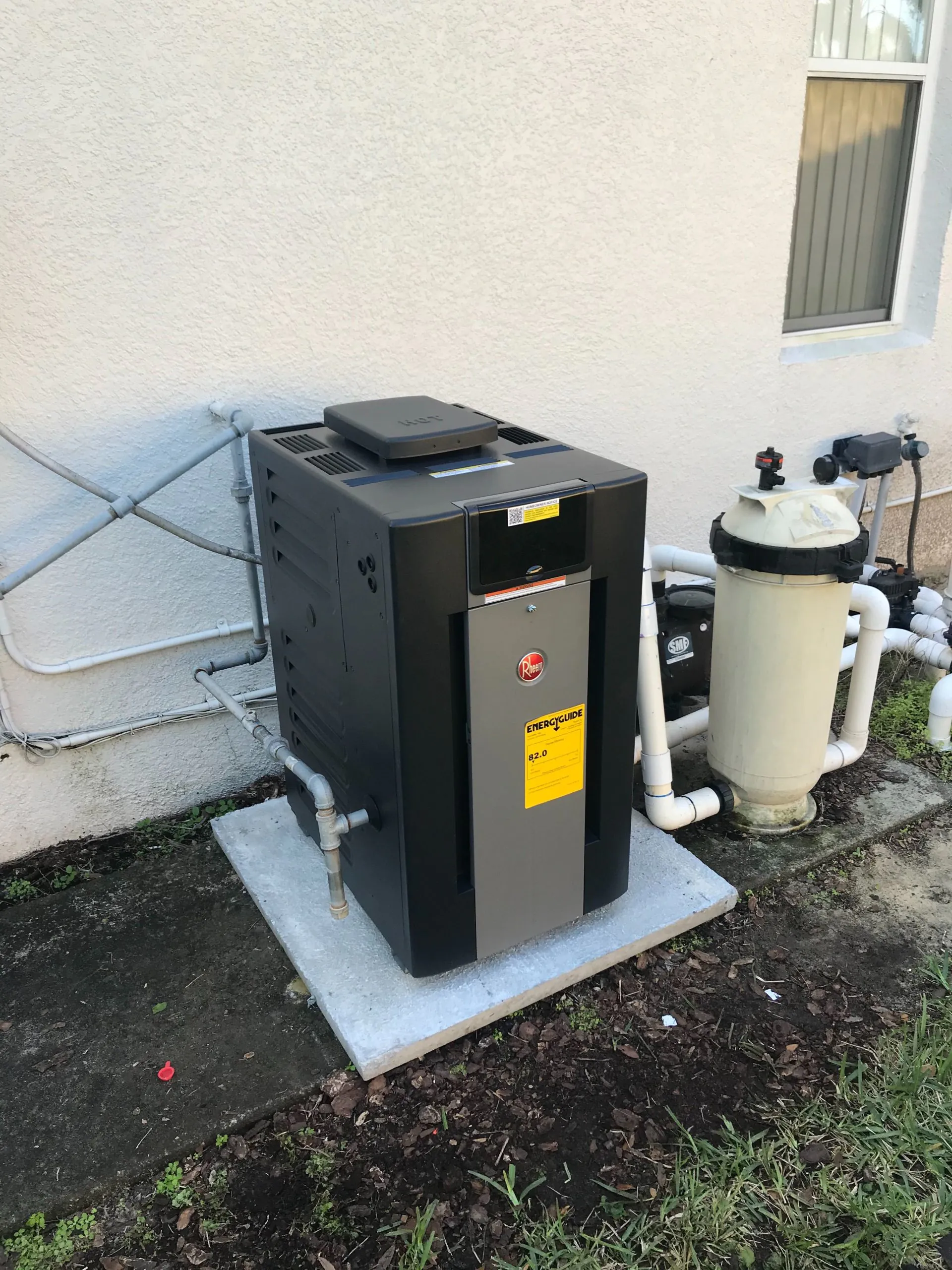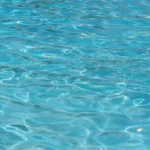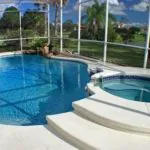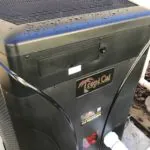Table of Contents
Common Property Management Issues: Repair for Pool Heaters
At Kalos Services, we have worked with both short-term and long-term rental managers for over 8 years. We know how hard you work and how difficult your job can be. Over the years of working on air conditioning systems, pool heaters, and electrical applications, we have come up with some ideas and guidelines that we hope will help you out.
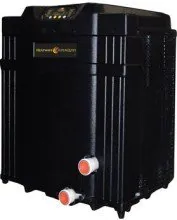
Today, we will discuss the different types of pool heaters. We will also share some tips to make managing your equipment a bit easier.
A pool is becoming a staple of what guests desire in a property they are considering for a short-term vacation rental home. We've found that pool heaters can be a great added feature when your guest is closing a booking on a home. Conversely, when there is an issue with the pool heating, you will get a lot of guest complaints. Hopefully, the information below will help you avoid that, keep your customers happy, and get great reviews and repeat business from them!
Types of Pool Heaters
There are typically two types of pool heaters a short-term property manager will want to look into: gas pool heaters and pool heat pumps.
Gas pool heaters make for very nice warm water, which means you will get fewer cold pool complaints. Unfortunately, gas pool heaters are more expensive to operate, and they generally begin to have significant corrosion after only 5 years or so. Gas pool heaters do not cost as much to replace, but they also do not come with very long warranties.
Pool heat pumps are much more cost-effective to run but do not get the water hot as quickly. Pool heat pumps also cost much more to install, but they usually have warranties of 5 years or more. Generally speaking, pool heat pumps will last 8-12 years before they experience a major failure.
It is unlikely that most pool heat pumps (electric) will maintain the pools at 85+ degrees during days where the low temperatures drop to near 40 or below. That inconvenience can be even worse on days where the high temperature does not go above 60 degrees.
Tips for Getting the Most Out of Your Heater
1. Turn your pool heater on several days in advance to make sure the pool is up to temperature before the cold snap. If you wait until it is cold outside to turn on a heater, it may never catch up until the cold period ends; this is due to the way the heaters are sized, and some heaters will do better than others.
2. Increase the pump run time before the cold weather. We recommend setting the run time from 8 AM to 8 PM.
3. Have the guests cover the pool at night. If you can get them to cover the pool, it will GREATLY assist in the pool temperature and power usage.
4. Do not run a heat pump overnight on a cold night. Many pool heat pumps will ice over and require manual defrost if you do this.
5. Take care of issues ahead of time by scheduling annual maintenance on the pool heater. Catch small issues before they become larger ones, monitor trends, and improve your guest’s experience by being prepared. You can save yourself money, time, and grief by doing this, even if it feels unnecessary at the time.
As with everything, the temperature that a pool can maintain is directly related to the size of the pool and the capacity of the heater. Every location will also be different. Check out our Pool Heating Services page for more information!
We are happy to help you with questions or training at any time. If you give us a call, we will try to connect you with someone who has the answer. We would also be happy to speak at any of your company/organizational meetings or give onsite classes on the subject of your choosing. It is our pleasure to help, and we look forward to helping you succeed.
All the best,
Bryan Orr – Co-Founder Kalos Services Inc.
CFVRMA Associate Member
Do you have questions? We can help! Fill out the form below:

